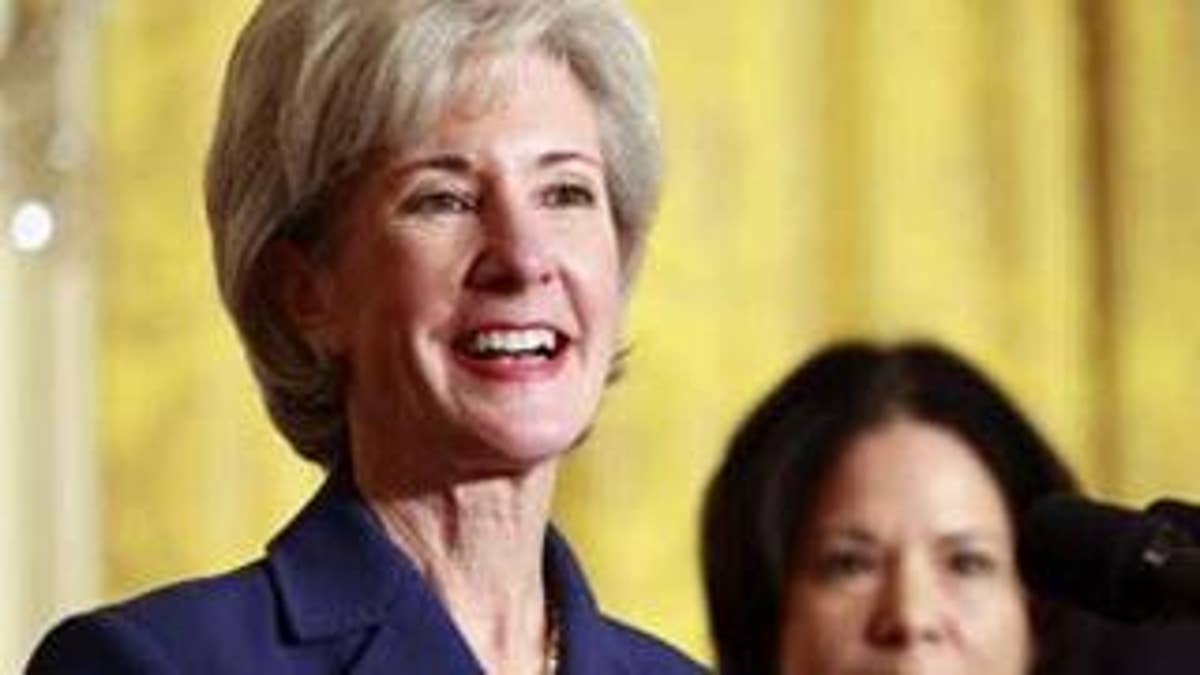
Obesity is a big problem.
It's considered a major risk factor for conditions like heart disease and diabetes. It causes us to spend tens of billions of dollars every year on health care. And it's not getting better: The Centers for Disease Control and Prevention found in a recent study that the proportion of obese U.S. adults rose again last year, to 26.1 percent.
So what to do about it?
The CDC is attempting to answer that question this week, with a three-day conference in Washington, D.C., called "Weight of the Nation." The agency has issued a slew of reports on obesity in recent weeks and just released a set of two-dozen recommendations for how communities can implement better programs and policies to slim people down.
But with local trans fat bans all the rage these days, as well as surcharges on the obese, the new federal attention on obesity raises questions about whether government can tackle weight gain without intruding into Americans' kitchens, restaurants and grocery stores.
Will diners be permitted two dashes of salt, and not three? Will they be required to sop up pizza grease with paper towels before eating? Will boardwalk food be eliminated outright?
"It's a question of limiting personal choice," said Texas state Sen. Kel Seliger, who recently opposed a trans fat ban that would have applied to the entire Lone Star State. The measure, following on the heels of a similar one in California, was passed by the Texas Senate, but died in the House.
Seliger, a Republican, said he's all for providing healthier foods in public schools and better dietary education, but the government generally should stay out of the business of restricting food content.
"I like to inform the public rather than coerce the public," he said.
Inevitably, the debate over obesity in America folds into the debate over health care reform.
After the CDC reported this week that the health cost of obesity is up to $147 billion annually, Health and Human Services Secretary Kathleen Sebelius told the CDC conference Tuesday that reducing obesity is at the heart of President Obama's health care plan.
She and former President Clinton, who spoke Monday at the conference, argued that reducing obesity, in turn, would lower health care costs dramatically. Clinton cited a study that showed the country could save billions if it invested a fraction of that in prevention.
The CDC's new recommendations for reducing obesity deal in large part with making healthy foods more available and promoting physical activity in communities across America.
But they also venture into suggestions for new restrictions. The recommendations call for communities to restrict the availability of unhealthy foods and beverages, institute smaller portion sizes, limit advertisements of unhealthy products and discourage consumption of sugary drinks.
The recommendations generally apply to public venues, with the possible goal of prompting more widespread restrictions elsewhere.
"It is a public health issue that cannot be dealt with entirely within the confines of a medical office," Clinton told the CDC conference Monday, talking about childhood obesity. "If we want to change this, we have to change what goes on at home and in the community and in the neighborhood and in the schools."
CDC Director Thomas Frieden reportedly told the conference that a tax on sugary drinks could help curb obesity, as he promoted measures that decrease the availability of unhealthy food while increasing their cost.
But he noted the political difficulty in getting such measures passed.
It's not just a political problem. For policy makers, the effort to draw the line between healthy and unhealthy foods, healthy and unhealthy behavior, is a challenge in consistency.
How can you tax soda but not french fries? How can you ban trans fats while doing nothing about salt content?
Judith Stern, a nutrition professor who specializes in obesity and other subjects at the University of California at Davis, said such questions are tricky. She said the move in Alabama, for instance, to make unhealthy state employees pay a surcharge on their health insurance was inconsistent and wrong-headed.
She questioned how the state can make overweight people pay more, yet not impose similar requirements on smokers or alcoholics.
"It singles out unfairly certain groups, and this case it would be the obese overweight group," she said. "It's not workable nor should it be, because we don't put a surcharge on other unhealthy behavior."
Alabama, which has the second highest rate of adult obesity in the country, is expected to start charging its employees an extra $25 for health insurance next year. They can avoid the fee if a wellness center determines they're physically fit -- but if they're not and don't make an attempt to shape up, they pay up.
Advocates of the plan say it can help make employees healthier while reducing health care costs. Foes call it the "fat tax."
Despite cringing at Alabama's new policy, Stern said government has a role to play in helping America get trim. She said new policies should be enacted requiring some restaurants to more prominently display the nutritional information -- or lack thereof -- in their dishes.
She said public education is a big factor. She suggested that since obesity is often prevalent in low-income households -- unhealthy food is often the cheapest -- governments could make healthy foods more affordable by offering something akin to food stamps for fresh produce. And she supports a soda tax.
She suggested more research will be needed on all fronts.
"In fact, we don't know how to prevent obesity. We think we know," she said.
Case in point, the Trust for America's Health declared in a report this month that America's obesity policies are "failing."
The group reported that adult obesity did not decrease in a single state last year, and the percentage of obese or overweight children is at 30 or above in 30 states.
The Trust for America's Health recommended that communities and schools make nutritious foods more affordable and accessible, increase opportunities for physical activity, particularly at schools, and ensure everyone has access to coverage for preventive care -- including nutrition and obesity counseling.
Texas state Rep. Jodie Laubenberg, who also came out against her state's push for a trans fat ban, said government should be careful, though, not to go too far beyond public education campaigns.
"Is it the government's role to tell me what food I'm going to eat? If that's the case ... why not ban caffeine?" she said. "Where do we stop?"




